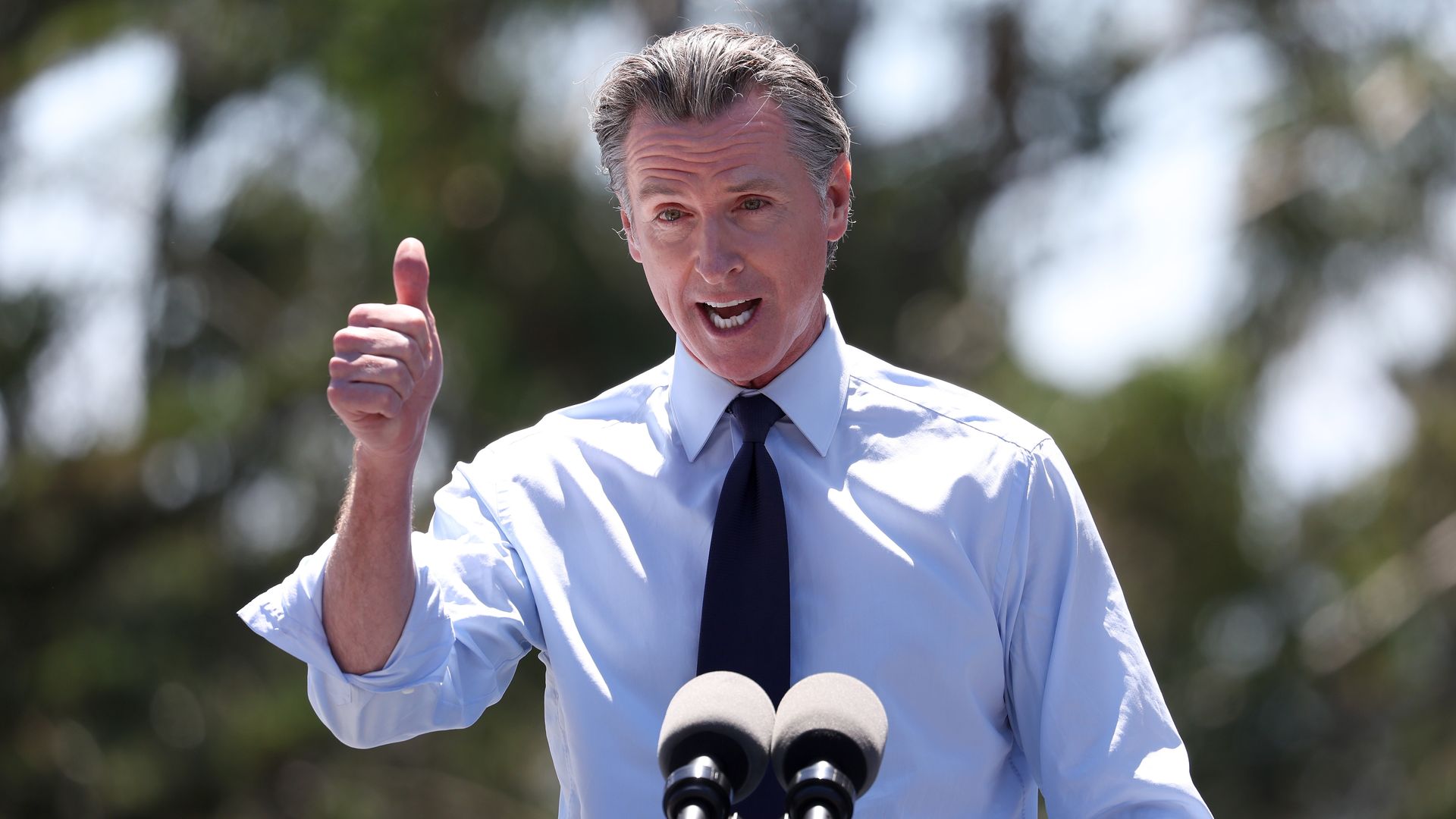What Happened
On June 10, 2025, California Governor Gavin Newsom delivered a nationally televised address in which he criticized President Donald Trump’s recent deployment of military forces to Los Angeles amid ongoing protests against federal immigration raids. Newsom described the current political climate as a “perilous moment” for American democracy, asserting that Trump’s actions have escalated tensions and posed a threat to democratic norms. The governor’s remarks came during the fifth day of protests in Los Angeles, where demonstrators expressed their anger over federal immigration enforcement actions that they argue disproportionately target vulnerable communities.
In his speech, Newsom accused Trump of “pulling a military dragnet” across Los Angeles, claiming that the deployment of 4,000 National Guard troops and 700 Marines has led to the detention of individuals not involved in serious criminal activities, including workers in low-wage jobs. He emphasized that California’s situation could serve as a precursor for other states, warning that “democracy is under assault” and urging citizens to stand up against what he perceives as authoritarian tactics.
Key Details
- Date of Address: June 10, 2025
- Location: Los Angeles, California
- Military Deployment: Trump ordered the deployment of 4,000 National Guard troops and 700 Marines to Los Angeles.
- Protests: Ongoing demonstrations in Los Angeles against federal immigration raids, which have been marked by arrests and heightened tensions.
- Key Quote from Newsom: “California may be first, but it clearly won’t end here. Democracy is next.”
- Context of Protests: The protests are a response to federal immigration enforcement actions that have reportedly led to the detention of individuals in various low-wage jobs, raising concerns about the impact on immigrant communities.
Multiple Perspectives
Newsom’s address has been met with a range of reactions. Supporters of the governor, particularly within the Democratic Party, have praised his willingness to confront Trump and highlight what they view as an overreach of federal power. They argue that Newsom’s stance is essential for protecting the rights of immigrants and maintaining democratic principles.
Conversely, critics, including some Republican leaders, have accused Newsom of politicizing the situation and inflaming tensions. U.S. House Speaker Mike Johnson suggested extreme measures against Newsom, indicating a significant divide in how political leaders are interpreting the events. Trump himself has characterized the protests and Newsom’s response as part of a broader narrative of chaos and disorder in Democratic-led states.
Context & Background
The backdrop to Newsom’s address includes a series of intensified immigration enforcement actions by the Trump administration, which have sparked widespread protests across the United States. The deployment of military forces in response to civil unrest is a contentious issue, raising questions about the appropriate use of military resources in domestic situations. Newsom’s remarks reflect broader concerns among some political leaders and activists regarding the potential erosion of democratic norms and civil liberties under the current administration.
The protests in Los Angeles have been fueled by fears within immigrant communities about aggressive enforcement actions, which many argue disproportionately affect non-violent individuals. The situation has drawn national attention, with similar protests emerging in other cities, indicating a growing movement against the administration’s immigration policies.
What We Don’t Know Yet
As the situation continues to develop, several uncertainties remain. It is unclear how the deployment of military forces will affect the ongoing protests and whether further actions will be taken by state or federal authorities in response to the unrest. Additionally, the long-term implications of Newsom’s address for his political future, particularly as a potential candidate for the 2028 presidential election, are yet to be determined.
Furthermore, the effectiveness of the protests in influencing federal policy or prompting a change in the administration’s approach to immigration enforcement remains uncertain. The dynamics between state and federal authorities, particularly regarding the use of military resources in domestic law enforcement, will likely continue to evolve in the coming weeks.


